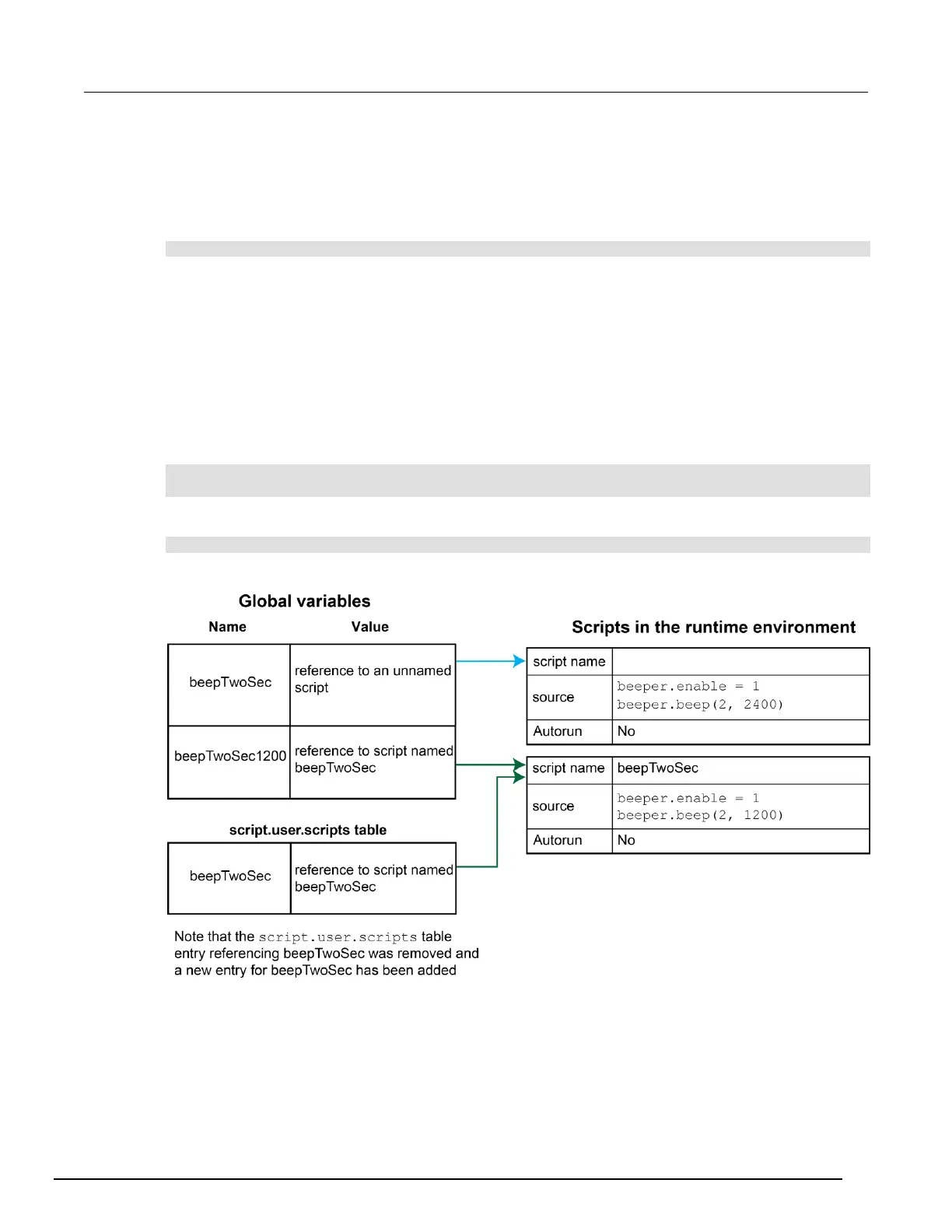A script will become unnamed if you create a new script with the same name. In this circumstance,
the name of the script in the script.user.scripts table is set to an empty string before it is
replaced by the new script.
For example, if beepTwoSec already exists in the script.user.scripts table and you sent:
beepTwoSec1200 = script.new("beeper.enable = 1 beeper.beep(2, 1200)", "beepTwoSec")
The following actions occur:
• beepTwoSec1200 is added as a global variable.
• The script that was in the run-time environment as beepTwoSec is changed to an unnamed script
(the name attribute is set to an empty string).
• The global variable beepTwoSec remains in the run-time environment unchanged (it points to the
now unnamed script).
• A new script named beepTwoSec is added to the run-time environment.
In this example, you can access the new script by sending either of the following commands:
beepTwoSec1200()
script.user.scripts.beepTwoSec()
To access the unnamed script, you can send the command:
beepTwoSec()
Figure 134: Create a new script with the name of an existing script

